Welcome to our informative post, “Why Heat Pumps Outperform Gas Furnaces: An Energy Cost Comparison”. In this educational piece, we meticulously break down the cost-efficiency and performance of heat pumps and gas furnaces, providing you with expert opinions and fact-based comparisons. With utility rates continuously increasing, this article can serve as a helpful reference in understanding which heating option is more economical and more sustainable for your home or business. We aim to simplify the often complex topic of energy consumption, making it easy for you to make informed decisions. So, join us as we delve into this intriguing exploration of heat pumps and gas furnaces. Let’s help you save energy and cost today!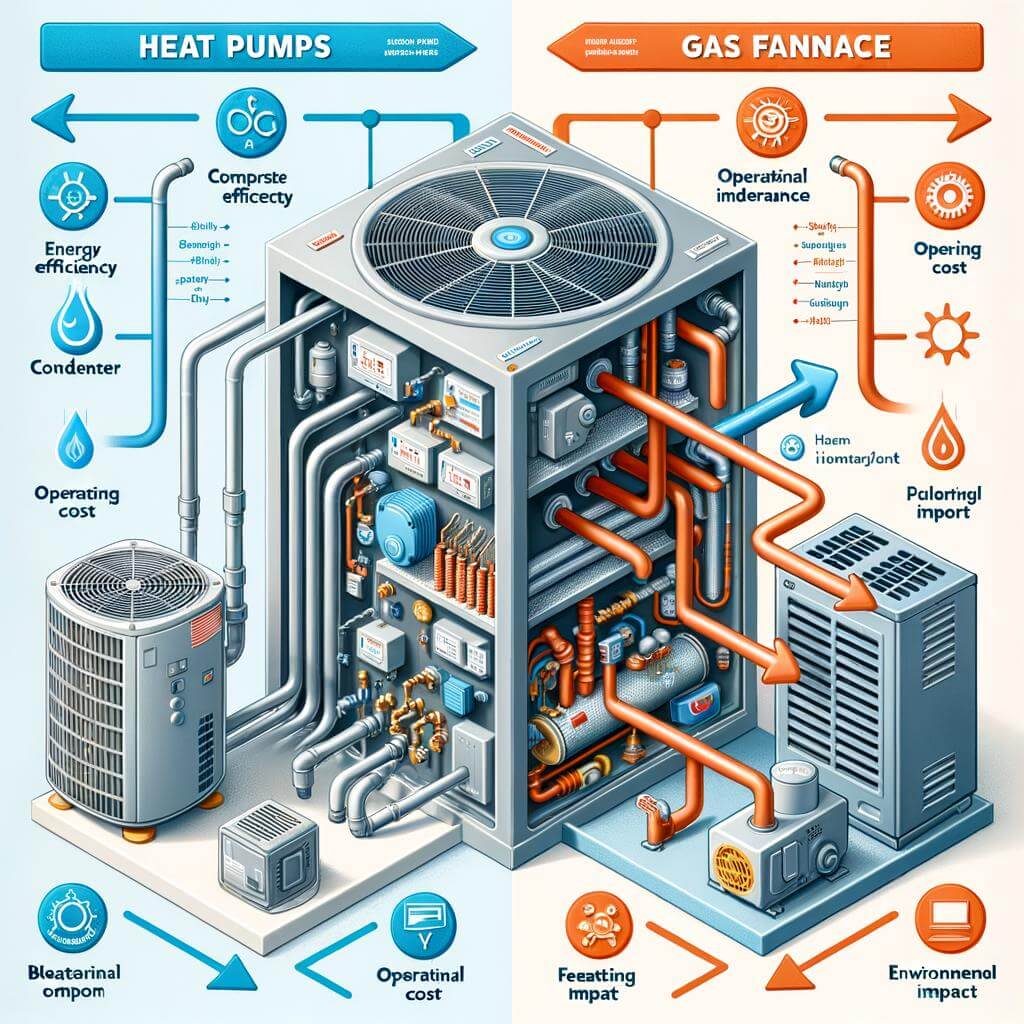
Understanding the Basics: Heat Pumps vs Gas Furnaces
In exploring the energy efficiency of both Heat Pumps and Gas Furnaces, it’s important to consider the operation style of each. Heat pumps, for instance, work by extracting heat from the outside air—even in cold weather—and then direct that heat indoors. They use electricity to accomplish this, and are adept at maintaining a steady, comfortable temperature. Gas furnaces, on the other hand, use a combustible fuel source (e.g., natural gas) to create heat. They’re renowned for their swift, high-heat output, which makes them effective in very cold climates.
When compared for cost-effectiveness, heat pumps tend to have the upper hand. Below is a basic comparison of the annual cost estimates of operating both systems:
| System | Cost Estimate |
|---|---|
| Heat Pump | $500 - $2000 |
| Gas Furnace | $800 - $3000 |
These estimates are greatly influenced by several factors including regional energy prices, local climate, and the specific efficiencies of the installed appliances. It’s noteworthy that heat pumps can provide both heat and cool air, contributing to annual savings more than a gas furnace can. However, in extremely cold climates, a gas furnace may be more effective due to its swift, high-heat output. Ultimately, the choice between a heat pump and a gas furnace will be driven by your specific needs, local conditions, and budget.
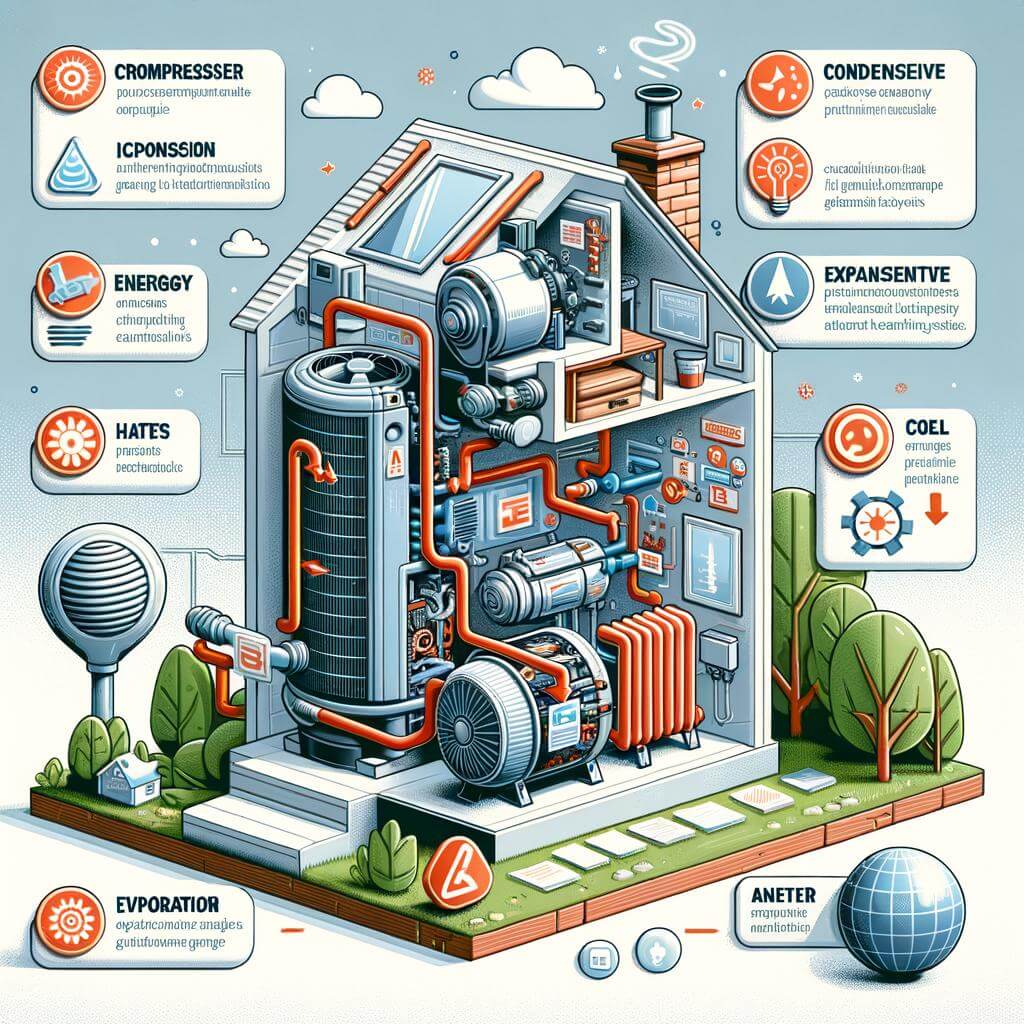
Uncovering the Key Facts that Put Heat Pumps Ahead
Amid rising energy costs, many homeowners are actively seeking sustainable and cost-efficient alternatives to traditional heating systems. Quite notably, heat pumps are emerging as the solution of choice, outperforming gas furnaces in numerous respects. This superiority is largely attributable to some incredible benefits anchored on a few key facts which put them clearly ahead in the energy cost comparison.
Fundamentally, heat pumps utilize the basic principles of heat transfer as opposed to burning fuel to create heat. This substantially reduces the energy cost since you’re not constantly purchasing fuel. In addition, their dual functionality for both heating and cooling further economizes your energy expenses. To give a clearer picture, here’s an overview of the key facts:
- Cost Efficiency:Heat pumps can deliver up to 3 times more heating energy than the electric energy they consume, making them extremely efficient.
- Double Functionality: Unlike gas furnaces, heat pumps can provide both heating in winter and cooling in summer, eliminating the need for separate cooling devices.
- Environment-friendly: Since it doesn’t burn fuel, a heat pump doesn’t emit carbon dioxide thereby contributing to a cleaner and healthier environment.
Let’s take an in-depth look at how heat pumps fare against gas furnaces in terms of operating cost and environmental impact:
| Comparison Point | Heat Pump | Gas Furnace |
|---|---|---|
| Operating Cost | Lower | Higher |
| Emission of carbon dioxide | No | Yes |
| Functionality | Heating and Cooling | Only Heating |
In conclusion, it’s clear that heat pumps have something meaningful to offer both in terms of energy efficiency and environmental sustainability. Therefore, if you’re looking for an integrated heating and cooling solution that’s cost-effective and environment-friendly, a heat pump outperforms a gas furnace and really should be your first consideration.
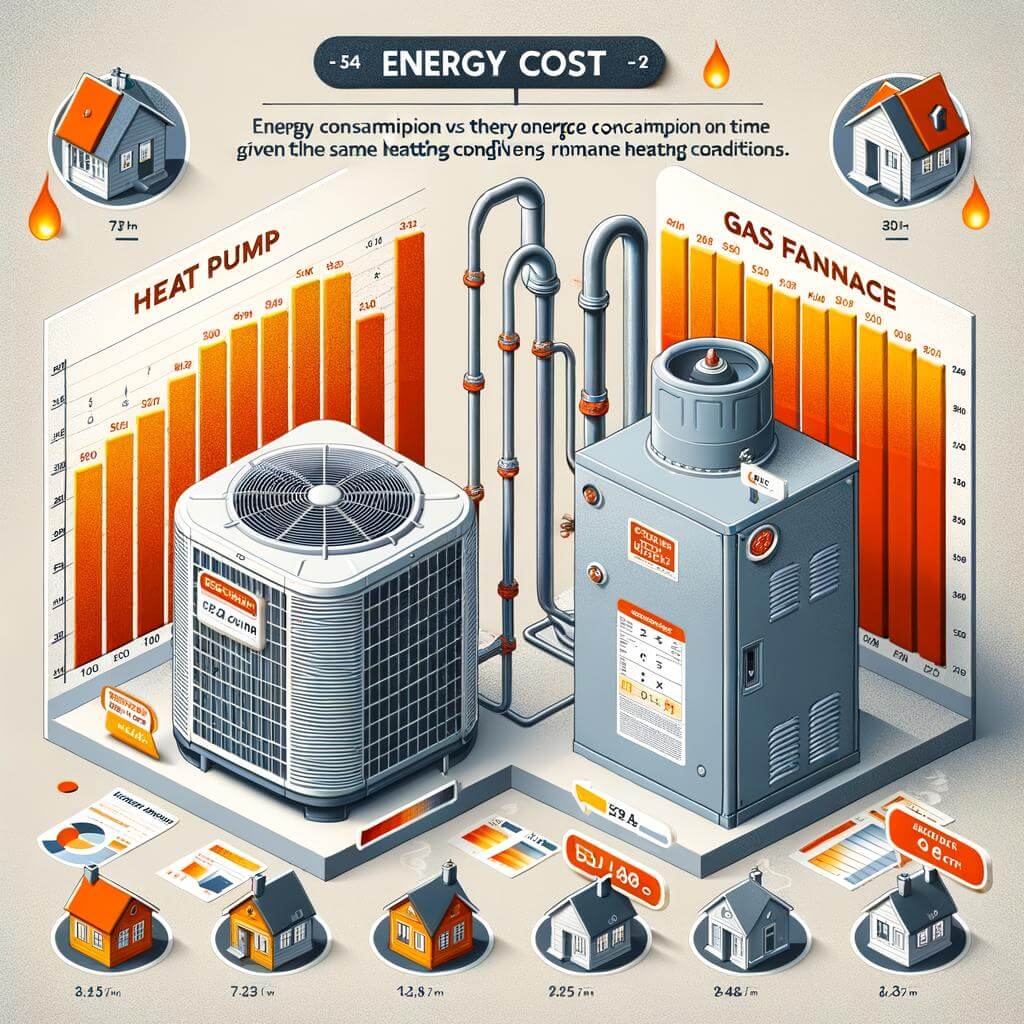
A Closer Look at the Energy Cost Comparison between Heat Pumps and Gas Furnaces
When choosing between a heat pump and a gas furnace for your home heating solution, making an informed decision is crucial. Both systems have their strengths and potential pitfalls, which can largely influence your energy bill. Below, we’ll break down the specifics of each system’s energy costs.
The heat pump, while initially more expensive, often recovers its cost over its lifespan through energy savings. A heat pump uses electricity to transfer heat from one space to another, essentially ‘pumping’ heat into or out of your home. This guarantees excellent energy efficiency, as energy isn’t wasted on generating heat. However, their performance can drop in very cold climates.
- Energy cost of an average heat pump: $200 - $600 yearly
- Installation cost: $4500 - $9500
- Life expectancy: 12 - 15 years
On the other hand, gas furnaces can provide consistent heat in any climate, but their energy efficiency tends to be lower. They burn natural gas to produce heat, resulting in a higher energy bill. Gas furnaces tend to be less expensive to install but may require more maintenance and repairs over time.
- Energy cost of an average gas furnace: $400 - $900 yearly
- Installation cost: $3500 – $6000
- Life expectancy: 15 – 20 years
While the costs can greatly vary due to the size of the property, insulation, heating demands and regional climate, this rough estimation indicates that heat pumps may offer long term savings, making them a more efficient and environmentally friendly choice. However, gas furnaces have a place in colder climates, where heat pumps might struggle.
| Heating system | Initial cost | Annual energy cost | Life expectancy |
| Heat pump | $4500 – $9500 | $200 – $600 | 12 – 15 years |
| Gas furnace | $3500 - $6000 | $400 - $900 | 15 – 20 years |
In conclusion, consider your local climate, initial budget, projected energy costs, and environmental impacts to make the best choice between a heat pump and a gas furnace for your home heating system.
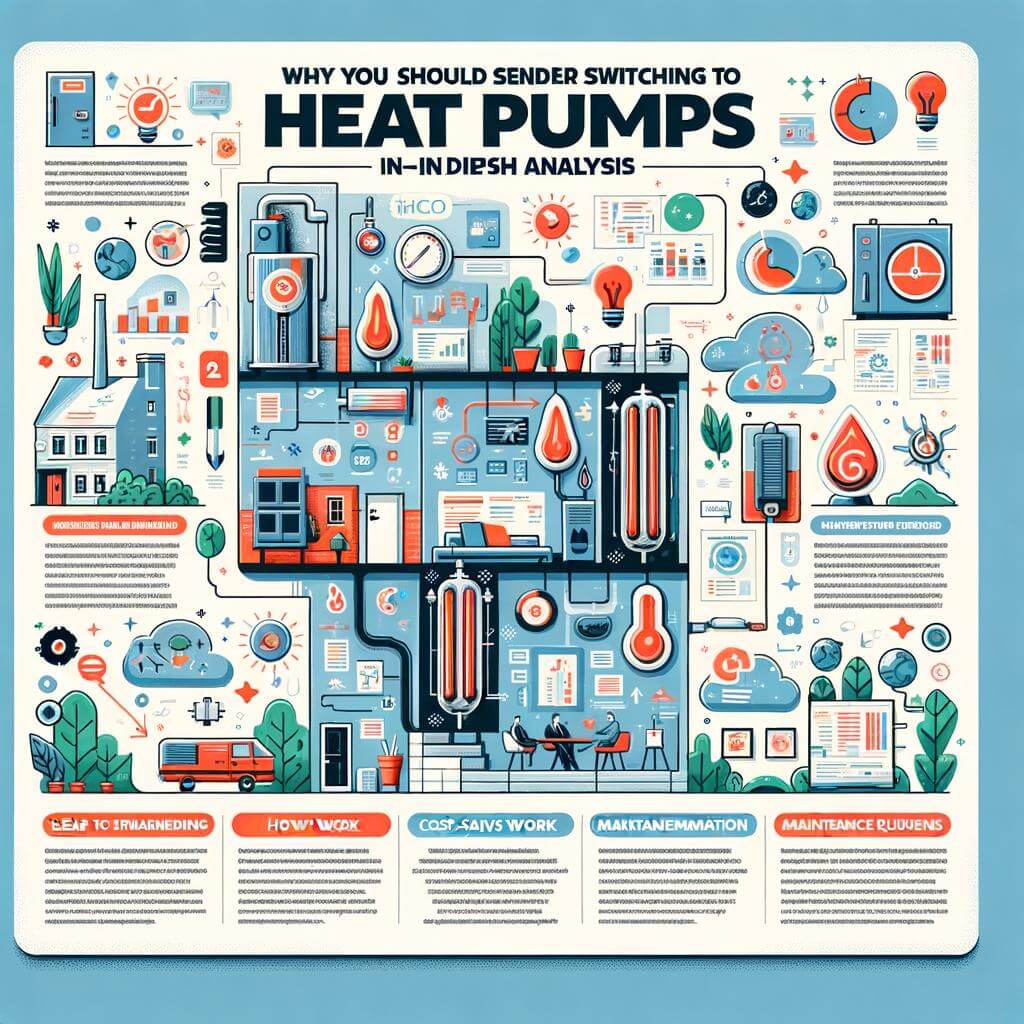
Why You Should Consider Switching to Heat Pumps: An In-depth Analysis
If you’re mulling over a heating system for your home and are looking to cut costs, thinking about the long-term benefits of heat pumps may just win you over. In comparison to traditional heating methods like gas furnaces, heat pumps appear to offer a multitude of advantages. With a heat pump, efficiency is the name of the game. These smart devices can convert a single unit of energy into multiple units of heat, making them significantly more efficient than their gas counterparts. As a result, you can expect to see a dramatic decrease in your energy bills. Additionally, the versatility of heat pumps cannot be overlooked. Unlike gas furnaces, which can only provide heat, heat pumps are capable of both heating and cooling your home. This means you can scrap your separate air conditioning system and merge your heating and cooling facilities into a single, cost-effective, and efficient machine. Plus, with fewer systems to maintain, you’ll also spend less on service and repair over time. Below is a simple comparison between heat pumps and gas furnaces:
| Heat Pumps | Gas Furnaces |
|---|---|
| Greater efficiency | Less efficient |
| Reduced energy bills | Higher energy bills |
| Ability to both heat and cool | Heating only |
| Lower maintenance costs | Higher maintenance costs |
Remember, the key to a comfortable and cost-efficient home lies in adopting a smarter approach to heating and cooling. By making the switch to a heat pump system, you’re not only reducing your carbon footprint, but also ensuring a cozy home for all seasons.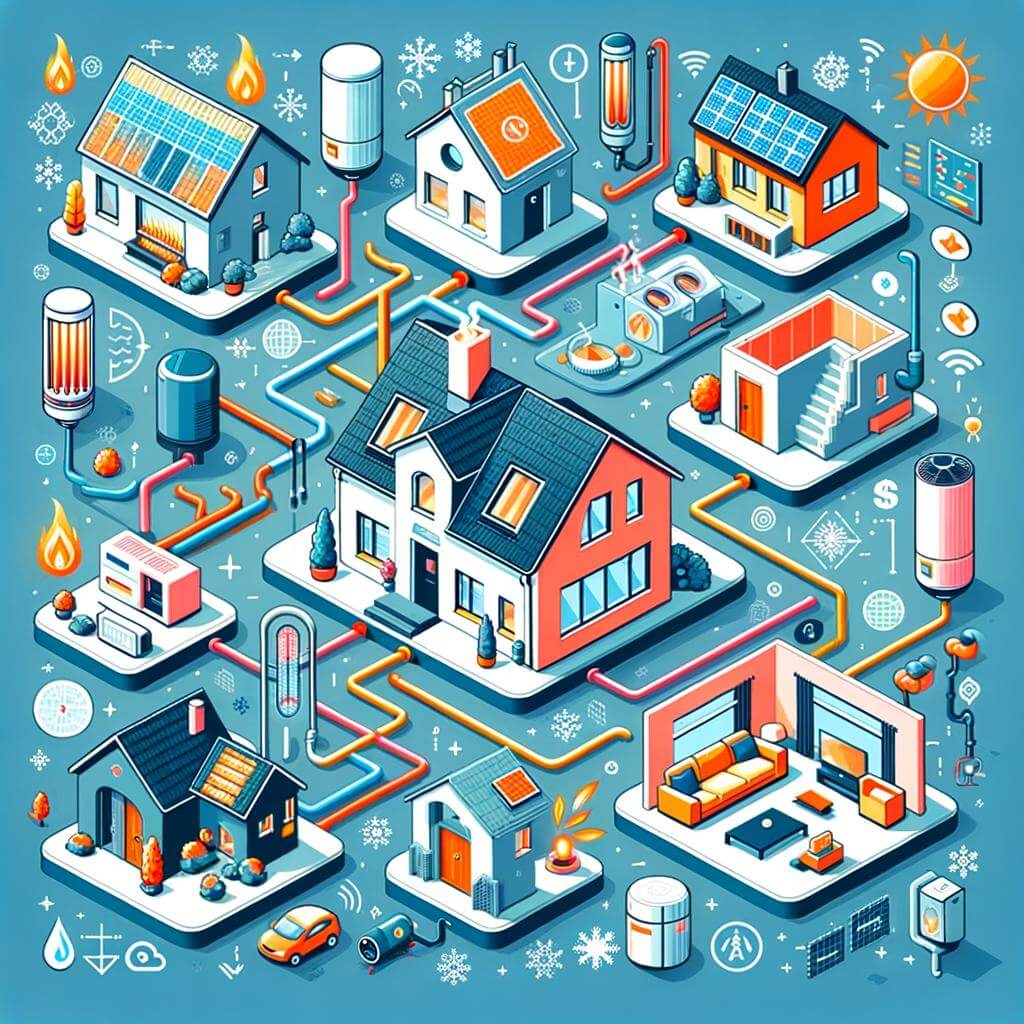
Expert Recommendations on Choosing the Right Home Heating Solution for You
Why Choose Heat Pumps?
Did you know that heat pumps have been steadily outperforming gas furnaces in terms of energy cost? Yes, that’s right. This is due to their high operational efficiency and eco-friendly nature. Heat pumps use electricity to move heat from a cool space to a warm space, which makes the warm space even warmer. This process is much less energy-intensive when compared to gas furnaces, hence they are cheaper to run.
- Operational Efficiency: Heat pumps operate by simply transferring heat from one area to another instead of creating heat. It can yield around 3 times more heat energy than the electrical energy it consumes.
- Environmental Impact: It uses electricity as its power source. Therefore, it doesn’t release any harmful gases into the environment.
- Cost-effectiveness: Although the initial cost may seem steep, heat pumps tend to have longer life spans and lower operational costs in the long run which makes them a worthwhile investment.
Cost Comparison: Heat Pump vs Gas Furnace
| Type of Heating System | Average Operational Cost (Per Year) | Lifespan (In Years) |
|---|---|---|
| Heat Pump | $500 | 15-20 Years |
| Gas Furnace | $1,200 | 10-15 Years |
Picking the right heating solution for your home not only involves considering the upfront cost but also long-term maintenance costs, energy efficiency, and environmental impacts. A heat pump provides a cleaner, more efficient option against gas furnaces. It’s no surprise that many homeowners are making the switch to heat pumps to benefit both their wallets and the environment.

Concluding Thoughts: Making the Case for Heat Pumps Over Gas Furnaces
Through this detailed comparison, we’ve seen that heat pumps do not just outperform gas furnaces in energy efficiency, they also hold the upper hand in terms of cost-effectiveness, carbon footprint, and longevity. Heat pumps utilize renewable heat from the environment, unlike gas furnaces that depend on the combustion of fossil fuels. Thus, they are a win-win for both your wallet and the planet.
For typical homes, the operating costs of heat pumps are usually much lower than those of gas furnaces. In addition, the installation cost of a heat pump, while higher upfront, is offset by significant energy savings over time. Let’s glance again at the cost comparison:
| Criteria | Heat Pumps | Gas Furnaces |
|---|---|---|
| Installation Cost | Higher | Lower |
| Operating Cost | Lower | Higher |
| Longevity | Longer | Shorter |
| Carbon Footprint | Low | High |
In light of these facts, it becomes clear that if your goal is both energy efficiency and sustainability, the switch to a heat pump over a traditional gas furnace is a smart move.
In Retrospect
In conclusion, heat pumps stand out as the more energy-efficient, cost-effective, and eco-friendly heating solution compared to traditional gas furnaces. With their ability to provide both heating and cooling, reduce energy use, and lower utility bills, heat pumps certainly outperform gas furnaces. The comparison has been plainly laid out for you. It is hoped that you will find this information decidedly helpful in making the most practical choice for your heating requirements. Remember, opting for a heat pump doesn’t just meet your comfort needs, it also aligns with a globally conscious trend towards reducing carbon footprints. It’s about investing in the future while saving in the present. Always choose smart, choose sustainably.




